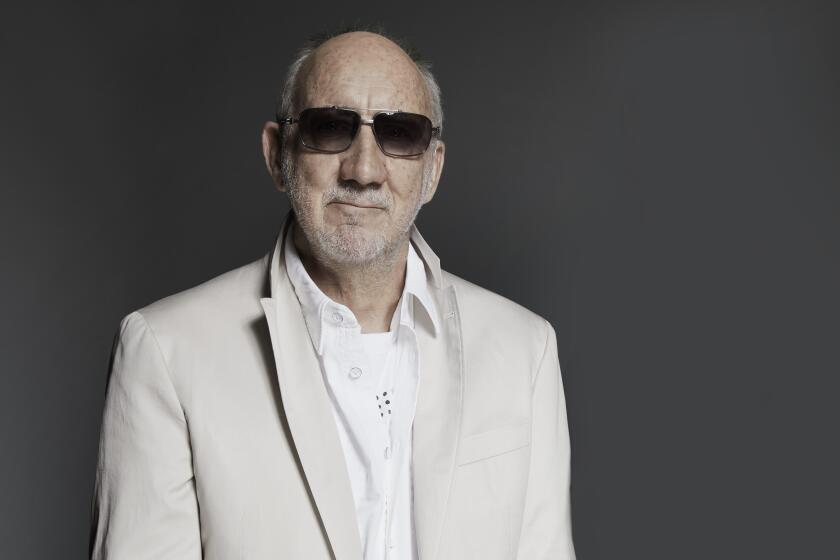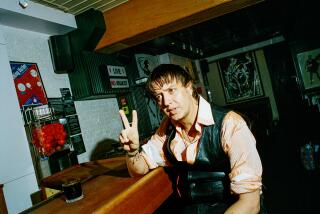For Arcade Fire, a return to big songs, still with some big worries
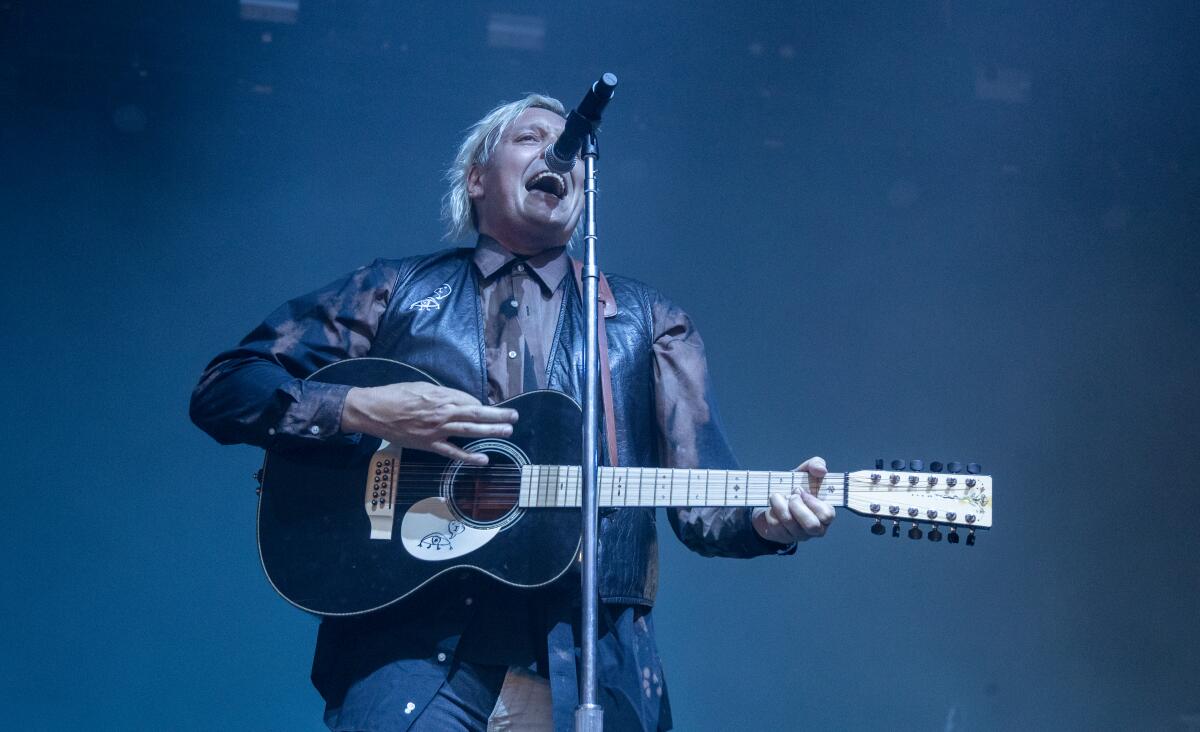
Treat yourself, if you haven’t watched it in a while, to the sight of Arcade Fire winning album of the year over Lady Gaga, Eminem, Katy Perry and Lady Antebellum at the 2011 Grammy Awards.
Barbra Streisand was the presenter that night and, clearly unfamiliar with the Canadian indie-rock band and its album “The Suburbs,” seems briefly confused by the words inside the envelope she’s opened; cameras trained for reaction shots from each of Arcade Fire’s competitors capture emotions ranging from oh-that’s-nice-for-them (Perry) to oh-you-gotta-be-kidding-me (Eminem’s producer Dr. Dre).
Then the group members crowd behind a microphone, where frontman Win Butler says both “What the hell?” and “Holy s—!” before telling the audience that they’re “gonna go play another song ’cause we like music.”
Pete Townshend on writing for Roger Daltrey (“not easy”); losing Keith Moon and John Entwistle; and his new Audible Original, ‘Somebody Saved Me.’
Earnest, exuberant, slightly insufferable: Arcade Fire’s unlikely Grammys moment crystallized everything that had powered the band’s speedy ascent from Montreal’s artsy underground scene to mutually admiring friendships with David Bowie and Bruce Springsteen. But it also marked a pivot point: After “The Suburbs,” Butler and his bandmates — including his wife, Régine Chassagne, and his brother, Will — took a darker and more sarcastic turn, trading whoa-oh-oh gang vocals for clammy disco grooves and moving on from thoughts of family and religion to ponder the sneaking encroachments of Big Tech.

“Reflektor,” from 2013, had enough of the familiar Arcade Fire energy to maintain the band’s festival-headliner status even as the rest of indie rock got dreamy and introspective. Yet 2017’s cynical if trenchant “Everything Now” turned off many in the band’s audience; it was the first of the group’s five LPs not to earn Pitchfork’s coveted Best New Music commendation.
Now, five years later, Arcade Fire is back with its sixth full-length album, “We,” which is being framed as a return to its openhearted ways: an “All That You Can’t Leave Behind,” essentially, after a “Zooropa” and a “Pop,” to make the U2 comparison this crew was courting from the get-go. In recent weeks the band — minus Will Butler, who quit for vaguely stated reasons after recording “We” — has even ventured to some of the hallowed spots where Arcade Fire made its name, Coachella and New York’s Bowery Ballroom among them, for sweaty, small-scale gigs meant to demonstrate its grassroots reengagement.
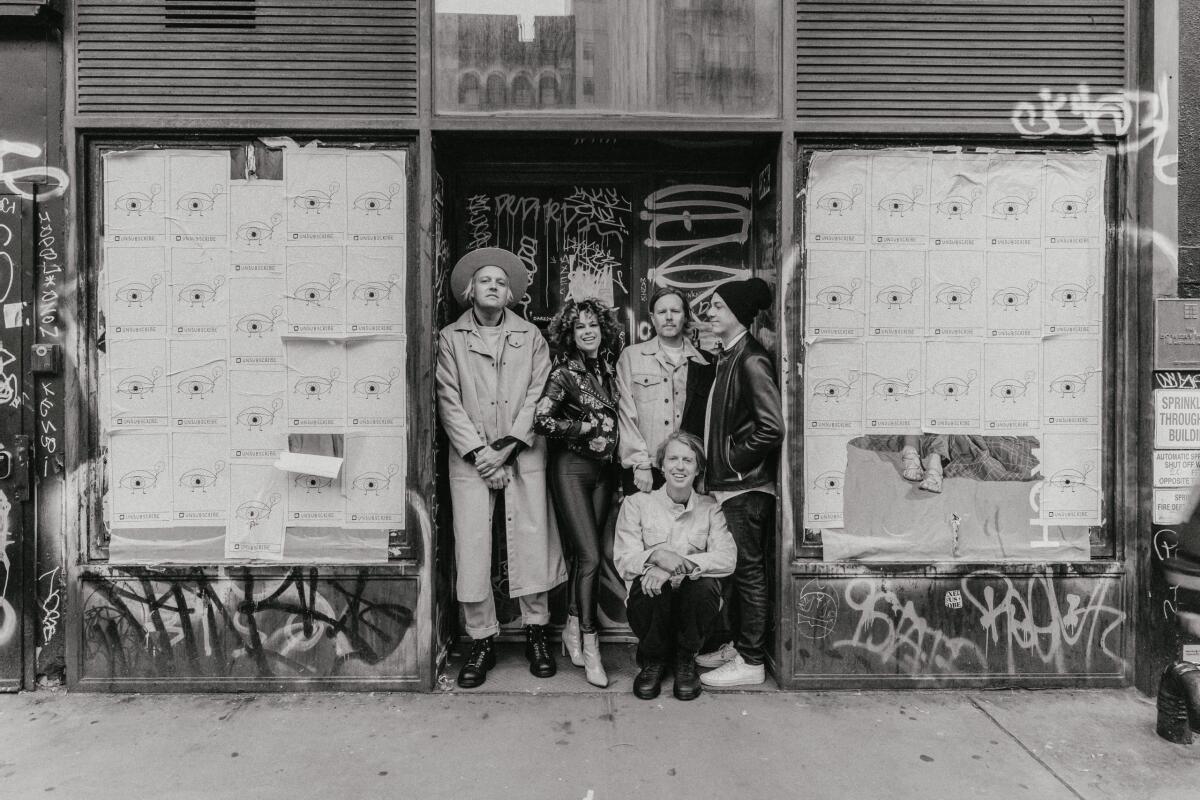
Which isn’t to say that Win Butler’s worries about the internet have suddenly been quelled. “Born into the abyss / New phone, who’s this?” he asks in his breathy yelp in “Age of Anxiety II (Rabbit Hole)”; “We unsubscribe / F— Season 5,” goes a line in the final movement of “End of the Empire I-IV.” (Those cumbersome titles? Recall that Arcade Fire’s 2004 debut, “Funeral,” contained no fewer than four tunes called “Neighborhood,” each with a distinguishing parenthetical.) In “Lightning I, II” — hey, I warned you — he glimpses “tires … burning in the middle of Rodeo Drive,” just one scene from a striking dystopian vision.
Unlike “Reflektor” and “Everything Now,” “We” holds out hope that humans may yet remember how to connect in the flesh. “I’ll be yours / You can be mine / Love unites,” Chassagne sings in “Unconditional II (Race and Religion),” while Butler in the closing title track rhymes “get down on one knee” with “get off this ride with me.” “Unconditional I (Lookout Kid),” which the frontman addresses to his and Chassagne’s 9-year-old son, counsels faith in one’s physical body: “You can dance / And you can shake / Things will break / You make mistakes.” It’s easy to hear him thinking about his younger self here, especially given the rise of soaring, Arcade Fire-indebted acts such as Gang of Youths who’ve brought this proudly impassioned approach back into vogue of late.
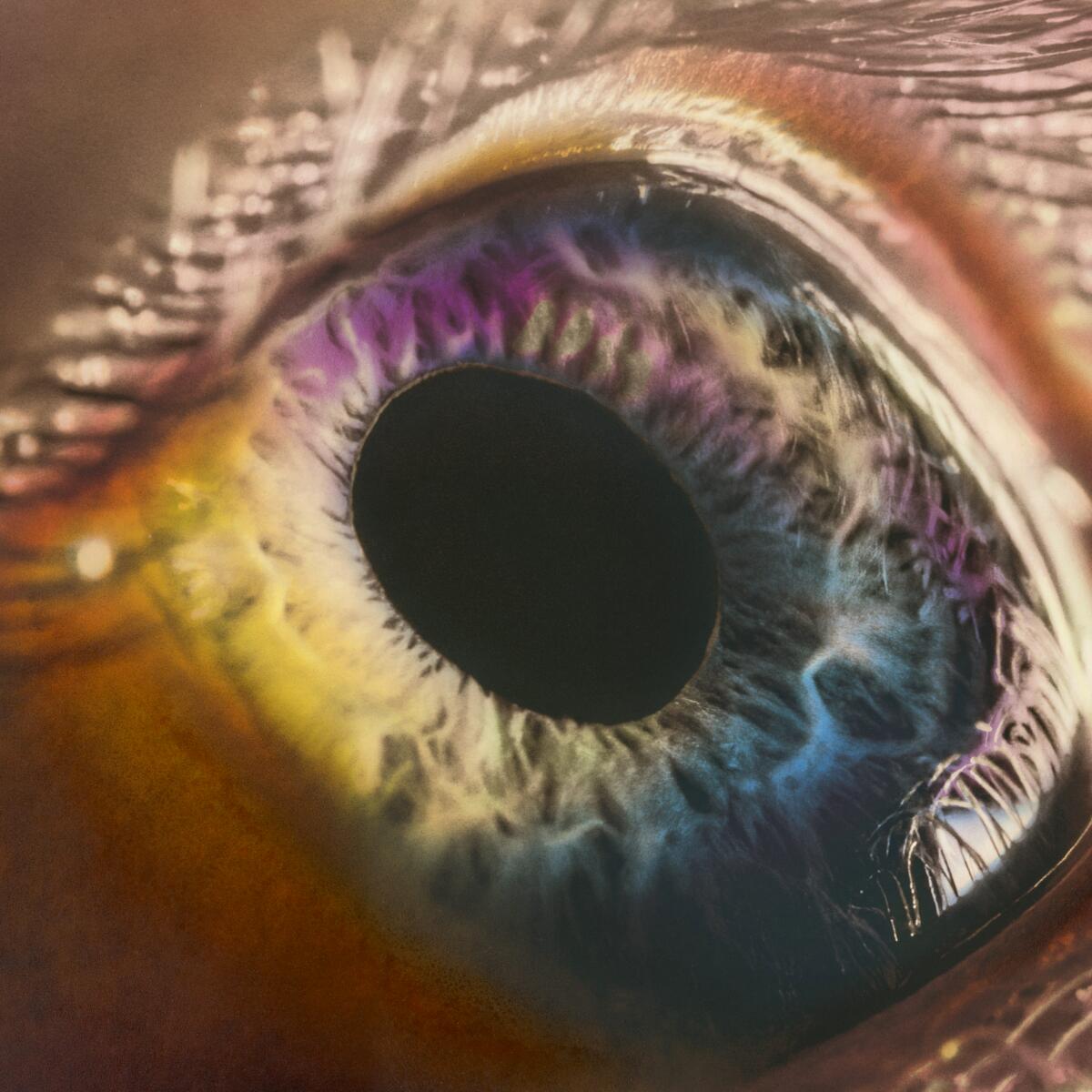
Musically, Arcade Fire is reaching back to the hand-played textures of its early material — lots of strings and keys and wind instruments, including harp played by Butler’s mother — though the band hasn’t sworn off sleek digital beats like those in “Race and Religion,” which features moaning background vocals from Peter Gabriel, and “Rabbit Hole.” (Butler and Chassagne produced the album with Nigel Godrich, best known for his work with Radiohead.)
It all sounds good — pretty and pulpy and rich, with singing miked close enough to catch every theatrically sincere voice crack. But the long, meandering songs don’t stick like the best of Arcade Fire’s older ones, not to mention like newish heartland-adjacent rock tunes by fellow indie survivors the Killers and the War on Drugs. There’s nothing as euphoric as “Wake Up” or as jittery as “Ready to Start” or as sensual as “My Body Is a Cage”; none of the melodies are as finely sculpted as those on the underrated “Everything Now,” which with any luck will be reappraised once social media finally attains Butler’s predicted level of hellishness.
Arcade Fire’s promise from the beginning was transcendence through emotional grandeur. But “We” suggests that it’s hard to achieve communion without songs that lift voices and not just spirits.
More to Read
The biggest entertainment stories
Get our big stories about Hollywood, film, television, music, arts, culture and more right in your inbox as soon as they publish.
You may occasionally receive promotional content from the Los Angeles Times.
